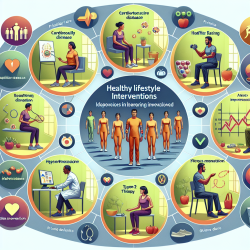Introduction
As practitioners dedicated to improving children's outcomes, we often focus on individualized approaches that address specific needs. However, the broader context of sustainable development and ecosystem governance can significantly impact our work. A recent research paper titled Complex problems and unchallenged solutions: Bringing ecosystem governance to the forefront of the UN sustainable development goals provides insights into how integrating ecosystem governance into our practices can enhance outcomes for children and communities alike.
The Importance of Ecosystem Governance
The research underscores the critical role of ecosystem governance in achieving the United Nations Sustainable Development Goals (SDGs). Ecosystem governance is an approach that integrates social and ecological components for improved sustainability. It includes principles such as adaptive ecosystem co-management, subsidiarity, and the telecoupling framework, emphasizing democracy and accountability.
For practitioners in speech language pathology and related fields, understanding and incorporating these principles can lead to more holistic and sustainable practices. By considering the broader environmental and social contexts, we can contribute to the well-being of children and their communities in more meaningful ways.
Implementing Ecosystem Governance in Practice
Here are some actionable steps practitioners can take to integrate ecosystem governance into their work:
- Adopt a Holistic Approach: Consider the environmental and social factors that may affect children's development and learning. This includes understanding how local ecosystems support community health and well-being.
- Promote Sustainability Education: Educate children and their families about the importance of sustainability and ecosystem health. This can foster a sense of responsibility and empowerment in young learners.
- Engage in Community Collaboration: Work with local communities to identify and address environmental challenges that impact children's health and development. Collaborative efforts can lead to more sustainable solutions.
- Advocate for Policy Change: Support policies that prioritize ecosystem governance and sustainability. This advocacy can lead to systemic changes that benefit children and their communities.
Encouraging Further Research
While the research provides a strong foundation for understanding the role of ecosystem governance in sustainable development, there is always more to learn. Practitioners are encouraged to delve deeper into the topic and explore how these principles can be applied in their specific contexts. By staying informed and engaged, we can continue to improve outcomes for children and contribute to a more sustainable future.
To read the original research paper, please follow this link: Complex problems and unchallenged solutions: Bringing ecosystem governance to the forefront of the UN sustainable development goals.










